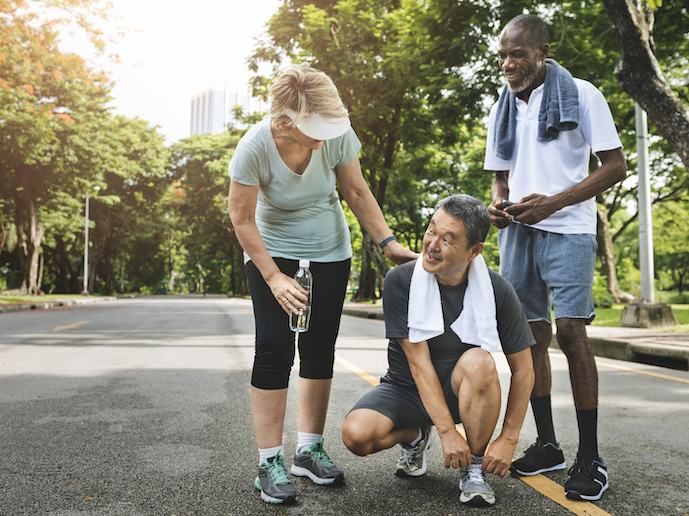Personalised, adaptive, socially inclusive home-based cardiac rehabilitation
Despite the success of cardiac rehabilitation (CR) in reducing mortality and morbidity rates, community-based CR uptake and adherence is low across the EU. The EU-supported PATHway project proposes a paradigm shift which empowers patients to better self-manage CVD within a collaborative care context. The project developed a sensor-based, internet enabled, home exercise platform that allows remote participation in tailored and adaptive exercises. The team recently completed a trial involving 120 participants (60 using PATHway and 60 controls), from Belgium and Ireland, who were undertaking phase 3 community-based CR. They found that not only was the system accepted by most of the patients and clinicians, but its Decision Support System also increased the time patients spent exercising and being physically active. This led to favourable heart health measurements compared to the control group. A flexible, user-centred approach European uptake of community-based CR has been estimated as low as 11 %(opens in new window). Some people are too far away from programmes or have limited available options, some experience scheduling problems and some feel intimidated participating in a group setting. “Our person-centred approach involved a four-stage, iterative co-design process, with user testing,” says Dr Kieran Moran. “Guided by behavioural change theory, we incorporated 22 techniques into the final design, alongside technological solutions to fulfil user identified needs.” PATHway worked with over 400 potential users and 50 clinical professionals using questionnaires, focus groups and one-on-one interviews to design the rehabilitation platform which delivers a 'virtual coach' exercise programme on Window-based PCs. Exercisers wear a wrist monitor to measure heart rate. If it is too high, PATHway automatically lowers exercise intensity, if too low, it increases intensity - keeping the user's heart rate in the ideal range. The system uses a depth-camera (Microsoft Kinect) to capture the exerciser's movements (viewable beside the virtual coach), as they receive motivational feedback. The complexity of the exercises is automatically matched to user ability, which is monitored over time. All activity information is collated and made available to the user on a platform dash-board to help them reach their goals. Users are encouraged to be physically active outside the home with the wrist monitor tracking activity as well as targeting other lifestyle challenges such as diet, alcohol consumption, stress management, medication compliance or smoking cessation, with supportive messages. “We also wanted people to be socially active, to emotionally support each other during what can be a difficult time. So we enabled users to link up, either virtually during exercise or physically, for example by going for a walk together,” says Dr Moran. Improving quality and quantity of life PATHway contributes to the EU’s ambition of helping citizens better self-manage health, not only improving quality and quantity of life, but also reducing direct and indirect healthcare costs. The team is currently analysing the data to learn more about how PATHway has affected the health indicators of users. “Aggregated data will allow us to further personalise programmes. In addition, direct data like this benefits from not relying on users’ self-reporting, which is notoriously inaccurate, giving us a deeper insight into how mHealth(opens in new window) based systems can be effective for rehabilitation and health management,” elaborates Dr Moran. The PATHway system is now ready to be rolled out commercially with the team actively looking for partners.







